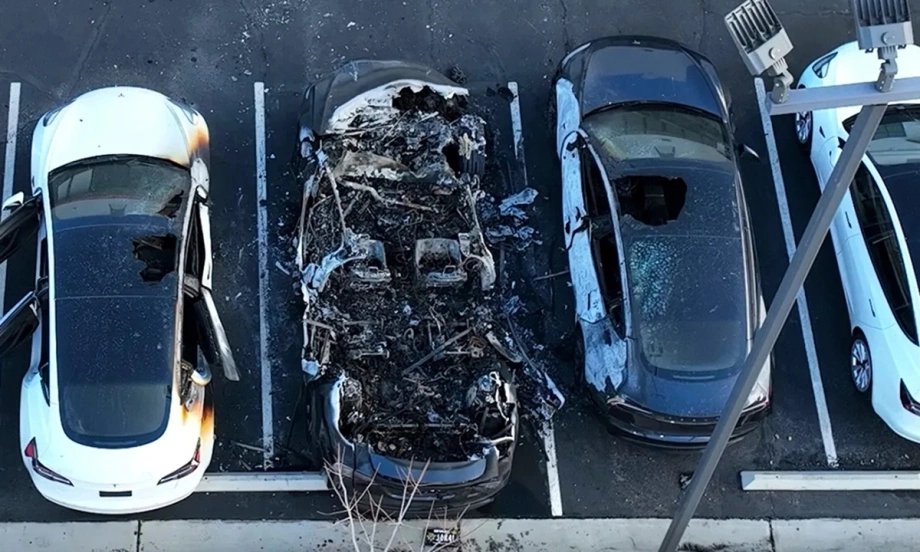In recent months, Tesla owners across the United States have begun selling off their vehicles in increasing numbers. This trend appears to be directly linked to growing dissatisfaction with Tesla’s CEO, Elon Musk, and his controversial actions, political statements, and business decisions. Protests against Musk’s influence, particularly on social media and within the business world, have escalated, leading some Americans to distance themselves from Tesla by offloading their electric vehicles (EVs). This article explores the factors driving this shift, its impact on Tesla’s market performance, and what the future may hold for the electric car giant.
## The Controversial Figure of Elon Musk
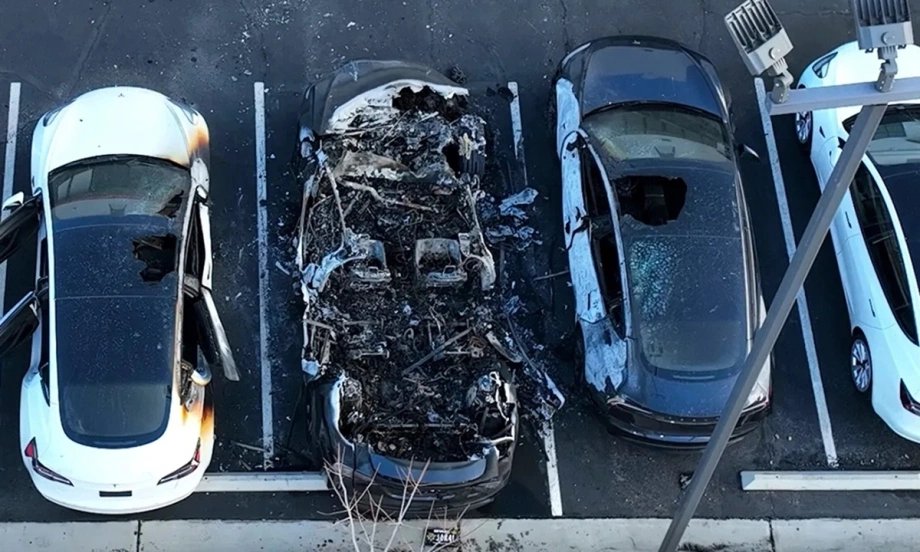
Elon Musk has long been a polarizing figure in both the technology and business sectors. As the CEO of Tesla, SpaceX, and several other ventures, he has built an image as a visionary entrepreneur pushing the boundaries of innovation. However, his outspoken nature and frequent forays into politics and social issues have made him a lightning rod for controversy.
### Political and Social Stances
Musk’s political views have fluctuated over the years, causing frustration among Tesla customers who initially saw him as an advocate for clean energy and progressive ideals. His acquisition of Twitter (now X) and his approach to free speech on the platform have led to widespread backlash. Critics argue that his policies allow for the spread of misinformation and extremist views, prompting many consumers to reconsider their support for his businesses.
### Labor Disputes and Workplace Issues
Tesla has faced criticism for its labor practices, including allegations of union-busting, poor working conditions, and racial discrimination. These issues have led to multiple lawsuits and negative media coverage, further damaging Musk’s reputation among socially conscious consumers who previously championed Tesla for its sustainability mission.
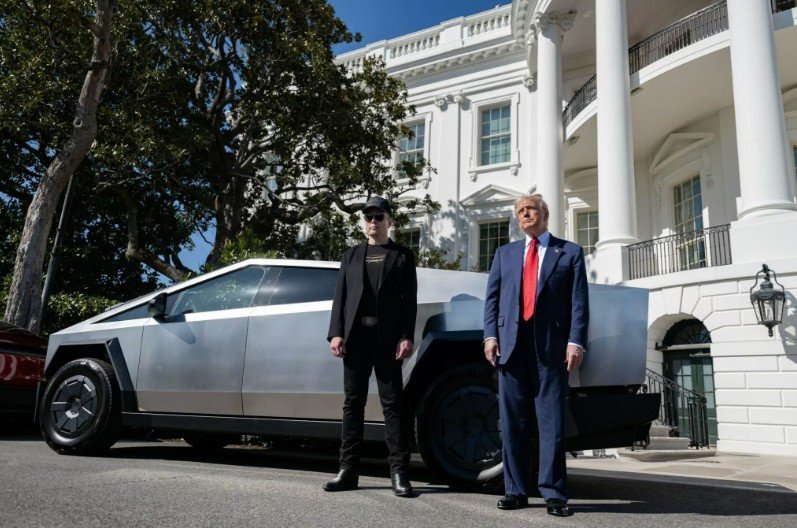
### Business Decisions and Stock Performance
Musk’s management style has also drawn criticism from investors. His frequent public statements on platforms like Twitter have been known to cause fluctuations in Tesla’s stock price. Additionally, concerns about his ability to effectively manage multiple companies simultaneously have led to uncertainty about Tesla’s long-term growth and stability.
## The Sell-Off Trend
### Rising Resale Listings
Data from used car marketplaces indicate that Tesla vehicles are being listed for resale at a significantly higher rate than before. Several factors contribute to this trend:
– **Moral and Ethical Concerns:** Many former Tesla supporters feel that Musk’s recent actions contradict their values, leading them to part ways with the brand.
– **Brand Association Issues:** Some Tesla owners have expressed concern that driving a Tesla now carries a political or ideological stigma, prompting them to switch to other EV brands.
– **Market Uncertainty:** The volatility of Tesla’s stock and questions about its long-term prospects have made some consumers wary of maintaining ownership.
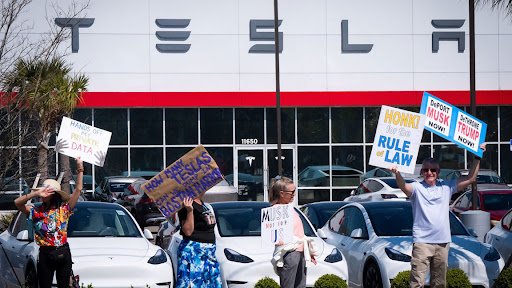
### Declining Resale Value
The surge in Tesla vehicles on the secondary market has led to a decrease in resale value. Reports show that used Tesla models are depreciating faster than other EV brands, with potential buyers either hesitant to invest or negotiating lower prices due to the oversupply.
## The Impact on Tesla
### Sales and Market Performance
Tesla’s sales figures are beginning to reflect the impact of consumer sentiment. While the company remains a dominant force in the EV industry, reports indicate a decline in new vehicle orders compared to previous years. If the sell-off trend continues, Tesla may face difficulties maintaining its market position.
### Competitive Pressure
The growing availability of alternative EVs from companies like Rivian, Lucid Motors, Ford, and Hyundai has given former Tesla owners more choices. These brands have capitalized on the opportunity by emphasizing ethical business practices, worker rights, and corporate responsibility, attracting defectors from Tesla.
### Investor Confidence
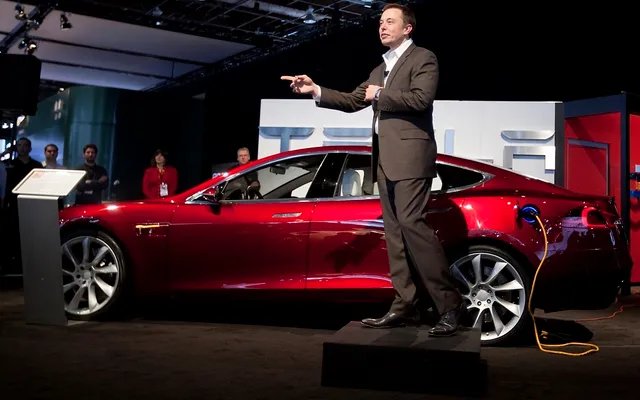
As public perception of Musk and Tesla shifts, investor confidence in the company has also been affected. Tesla’s stock has experienced fluctuations as analysts debate whether the brand can weather the current storm or if further declines are imminent.
## Public Reactions and Future Outlook
### Consumer Sentiment
Consumer surveys indicate mixed reactions. While some remain loyal to Tesla’s technological advancements, others believe the company needs to distance itself from Musk’s personal controversies to regain trust. Many consumers now prioritize corporate responsibility and brand image as much as they do product quality.
### Tesla’s Response
Tesla has yet to make significant public statements addressing the consumer sell-off trend. The company continues to focus on new product launches and technological developments, such as advancements in self-driving technology and battery efficiency. However, unless Tesla actively works to rebuild its public image, it risks losing more customers to competitors.
### Will Musk Step Back?
A critical question remains: will Elon Musk’s continued leadership hinder Tesla’s long-term growth? Some analysts speculate that appointing a new CEO or adopting a more structured public relations strategy could help restore faith in the brand. However, Musk’s deep involvement in Tesla makes such a transition unlikely in the near future.
## Conclusion
The increasing number of Tesla owners selling off their vehicles amid protests against Elon Musk signals a major shift in consumer perception. While Tesla remains a leading name in the EV industry, growing dissatisfaction with Musk’s public persona, business decisions, and controversial stances have driven many Americans to explore alternatives. The company’s future now hinges on its ability to separate its brand from Musk’s image and rebuild trust among environmentally and socially conscious consumers. Whether Tesla can navigate these challenges successfully remains to be seen, but one thing is clear: the electric vehicle market is evolving, and consumer loyalty is no longer guaranteed.
